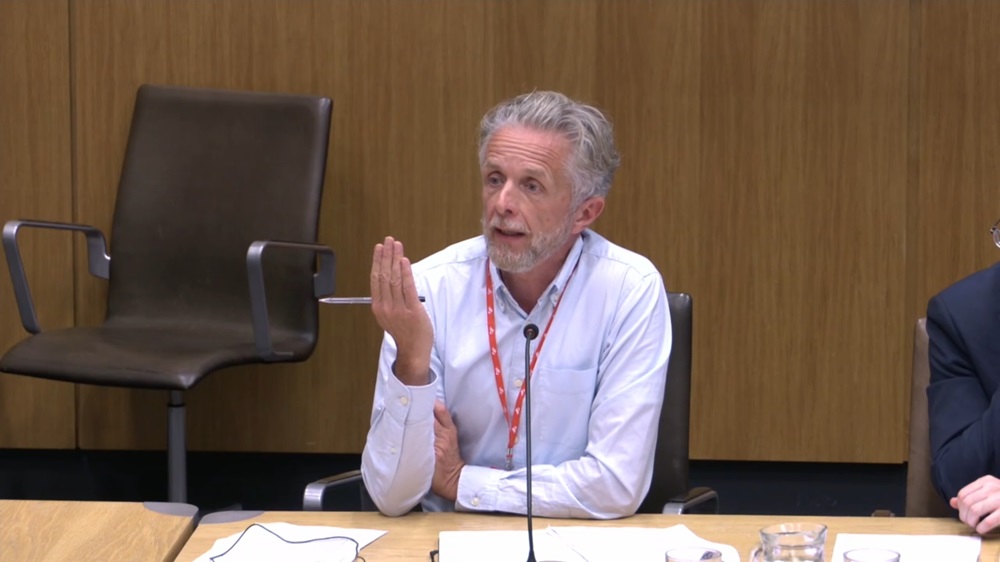Welsh Labour’s human rights pledge will miss 2026 deadline

Chris Haines, ICNN Senedd reporter
Plans to enshrine international human rights treaties into Welsh law will no longer be brought forward by 2026 despite it being a Welsh Labour manifesto commitment, a committee heard.
Labour’s 2021 Senedd manifesto pledged to incorporate United Nations conventions on rights of disabled people and the elimination of discrimination against women.
But the Senedd’s equality and social justice committee was told the Welsh Government will not introduce legislation on the UN treaties before the election in May 2026.
Simon Hoffman, a professor in law at Swansea University who specialises in human rights, led 2021 research on advancing equality and human rights in Wales.
His report made 40 recommendations including calling for a Welsh human rights bill.
In his written evidence to the inquiry, Prof Hoffman said preparatory work will not be complete in time for legislation to be brought forward during the current Senedd term.
He told the meeting: “I don’t think we can achieve what was in the recommendation…. I think the best we can think about is possibly a green paper and a timeline.”
‘Far away’
Witnesses warned a lack of time and money has harmed efforts to incorporate UN treaties.
Charles Whitmore, a research associate at Cardiff University’s Wales Governance Centre, chairs a working group that is exploring the legislative options.
He told the committee: “We do not have any financial resource so far made available to pay for time to do the work, so invariably it proceeds at a pace that matches voluntary capacity.”
Cautioning that incorporation could be “quite far away”, Mr Whitmore said: “I don’t know if we’re at the stage of being able to put a timeframe against this yet.”
He stressed that designing a legislative framework tailored to human rights as well as Wales’ unique devolution settlement does not lend itself to rapid progress.
Mr Whitmore said the working group is developing a systematic approach to incorporate human rights in the Welsh legal framework, replacing the current “patchwork” system.
‘Alarming’
Jenny Rathbone, who chairs the equality committee, raised concern about delays, criticising the previous UK Government’s “schizophrenic attitude” towards human rights.
“Time marches on and we’re only 18 months away from wrapping up this term,” she said.
Her Labour colleague Julie Morgan questioned whether there has been a shift in view from Welsh ministers, asking witnesses if incorporation still holds value.
Sioned Williams, Plaid Cymru’s shadow social justice secretary, similarly asked whether there has been any cooling of enthusiasm towards enshrining rights.
And Joel James, her Conservative counterpart, contrasted “warm words” from ministers with an “implementation gap” on the ground.
Mr Whitmore agreed about the need to protect against “regression” in human rights at a UK level, saying the “alarming” pace of legislation drained capacity and hampered work.
‘Significant step’
Prof Hoffman, who is secretary of the Senedd’s cross-party group on human rights, said incorporation should remain firmly on the agenda.
“Legal recognition of rights is a significant step,” he told committee members.
Prof Hoffman said incorporation of rights would raise awareness, signal importance, influence policy development and provide for accountability.
He added: “One of the things that incorporation does is it makes human rights enduring … it makes human rights sticky … and I think that is particularly important.”
Prof Hoffman pointed out that Wales’ 2011 Rights of Children and Young Persons Measure places a duty on ministers to have “due regard” to the UN convention on children’s rights.
The expert cautioned that spreading resources too thinly could force a binary choice.
He said: “I think it’s crucially important that we continue on the route towards incorporation while also looking at other ways of doing human rights in practice.”
‘Chilling effect’
Prof Hoffman suggested the UK Government’s decision to challenge Scotland’s children’s rights legislation in the Supreme Court has had a chilling effect on work in Wales.
Meanwhile, Mr Whitmore cautioned that the sector is under considerable pressure as he raised the example of the ripple effect caused by the closure of the Chwarae Teg charity.
Sarah Nason, a senior lecturer in administrative law at Bangor University, said public bodies are already subject to many duties and any new ones need to be aligned.
“It’s a question of the duties being clear and consistent,” she said.
Calling for reforms to improve access to justice, Dr Nason raised concerns about cuts to legal aid creating “advice deserts” across the country.
She told the meeting on September 16 that Wales sees “very few” judicial review claims per head of population compared with parts of England and other devolved nations.
‘Is Wales Fairer?’
The Equality and Human Rights Commission (EHRC) painted a mixed picture in its 2023 ‘state of the nation’ report, entitled Is Wales Fairer?.
Warning poverty remains a persistent problem in Wales, the EHRC raised concerns about one-in-four children living in relative income poverty.
The commission also found educational attainment for disabled children in Wales is falling behind other parts of the UK as is the attainment gap for those eligible for free school meals.
And, according to the report, the number of racially and religiously aggravated offences rose 72% from 2017 to 2022 while the number of offences resulting in a charge fell.
Making a total of 19 recommendations to the Welsh Government and other public bodies, the commission called for action to tackle gaps in data and evidence.
But the EHRC welcomed ministers’ commitments and highlighted progress on diversity in public appointments as well as a narrowing of gender pay and disability employment gaps.
Support our Nation today
For the price of a cup of coffee a month you can help us create an independent, not-for-profit, national news service for the people of Wales, by the people of Wales.






we have enough laws in Wales without these being added just to please the minority